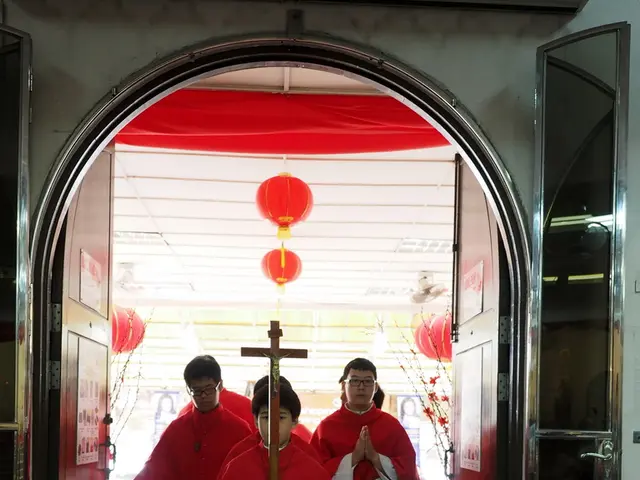Expressing views is not declaring a conflict. Please share this on our webpage.
How Come They Call You a Rebel for Protesting? Isn't It Just Exercising Democracy?
Ever been labeled a rebel just because you're using your right to free speech? It's like yelling fire in a crowded theater except in this case, the issues at hand are far more important than a simple emergency.
Truth be told, participating in rallies isn't rebellion—it's expressing democratic values. Yet, it's become all too common for protesters who fight for causes like labor rights, education access, or justice to be called "rebels" or "terrorists" instead. Is this what democracy has come to? A society where speaking up against injustices lands you with a scarlet letter?
Our constitution in the Philippines (Article III, Section 4) clearly states we've the right to free speech, peaceful assembly, and petitioning the government for grievances. It's as simple as that. But does that message ever seem to reach those who throw those accusations around?
Take the recent student rally in Cebu City, for example. These young protesters were demanding better education. Rather than recognizing and addressing their concerns, they were dismissed as future "terrorists" or leftists. Sounds like the classic case of ignoring the forest for the trees, right?
Across history, collective action has led to real, tangible progress. But those who speak up and challenge the status quo often face backlash. The 1986 People Power Revolution, responsible for restoring democracy, opened the way for a new era. Unfortunately, today's dissidents still face threats, harassment, and worse. Instead of addressing the root causes of their protests, critics prefer to delegitimize their calls for change.
We're quick to laugh off protests as if our hard-earned freedoms and rights have simply dropped from the sky. But let's not forget that demonstrations, rallies, and strikes have been instrumental in securing the freedoms we enjoy today. They are the roots of change, ensuring our voices are heard.
Unfortunately, protests are often associated with public disturbance and violence. However, that doesn't justify suppressing all forms of dissent. Instead, the government should address the root causes of unrest—issues like poverty, injustice, and corruption. Stifling peaceful protests only worsens tension in society.
Red-tagging, a practice that tarnishes individuals or groups as communists or insurgents, has become a common tactic to quash dissent. This labeling, adopted by both government officials and online trolls, often leads to threats, violence, and even killings of activists. Sadly, this climate of fear often discourages civil engagement and stunts social progress.
It's high time we remember our democratic roots. Hate speech, threats, and violence should never suppress our right to free expression and peaceful assembly. Let's continue to raise our voices and demand accountability before we find ourselves in a society where silence is the only option. If fear prevails, what kind of future are we building for the next generation?
- It's ironic that protesters, who are simply exercising their democratic rights, are often labeled as rebels or terrorists.
- In matters of education, justice, and labor rights, silence might as well be a cry for injustice in a society where speaking up lands you with a Scarlet letter.
- While protesters in Cebu City were dismissed as future terrorists or leftists for demanding better education, their concerns are crucial for the growth and development of the nation.
- Collective action, seen in protests, rallies, and strikes, has been the driving force behind securing the democratic rights and freedoms we enjoy today.
- Instead of labeling dissidents as rebels or communists, the government should address the root causes of unrest, such as poverty, injustice, and corruption.
- Red-tagging, a practice of labeling individuals or groups as communists or insurgents, can lead to threats, violence, and even killings, discouraging civil engagement and stunting social progress.
- If we continue to suppress free expression and peaceful assembly, we risk creating a future where silence is the only option, rather than accountability and progress.
- The democratic values of freedom, justice, and personal growth are not byproducts of our society; they are the result of protests and rallies that challenge the status quo and fights for change.

![A disturbing image depicts the controversial statement made by [politician's name] during a heated speech. The image captures a stark portrayal of the rhetoric used, causing widespread controversy and unease.](https://educentricblog.top/en/img/2025/04/30/1242501/jpeg/4-3/1200/75/image-description.webp)






